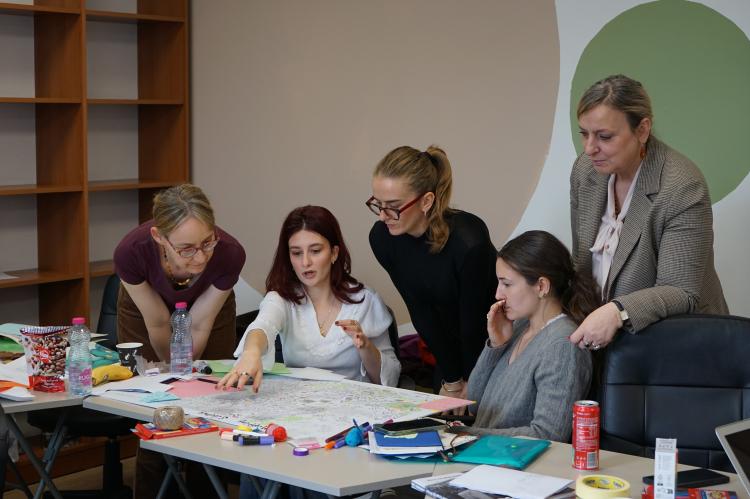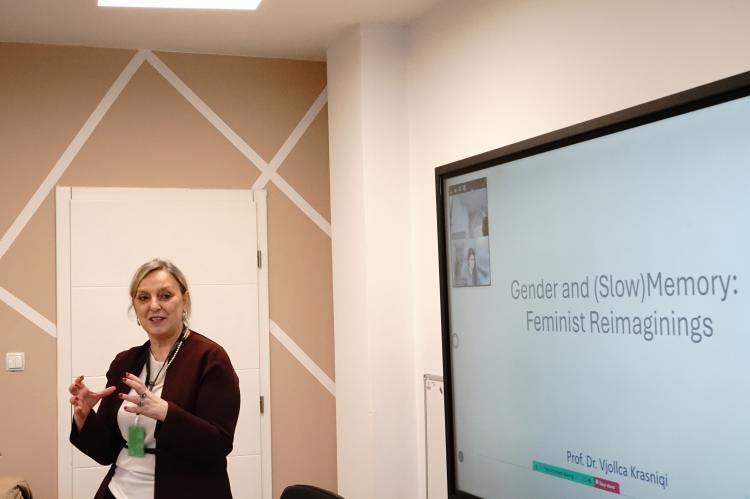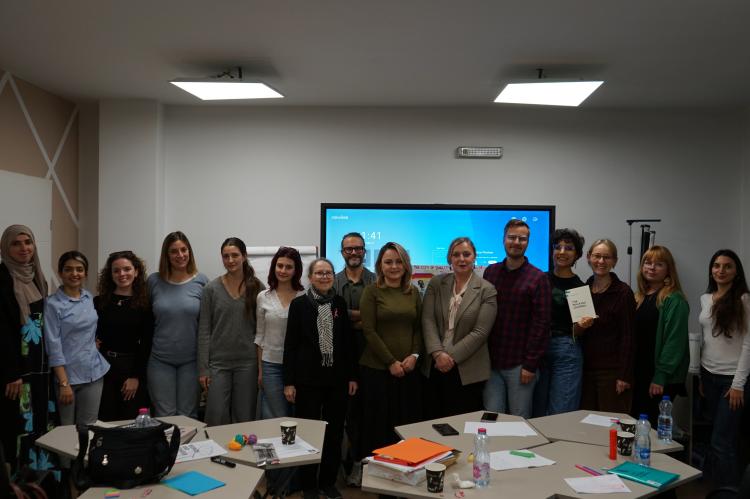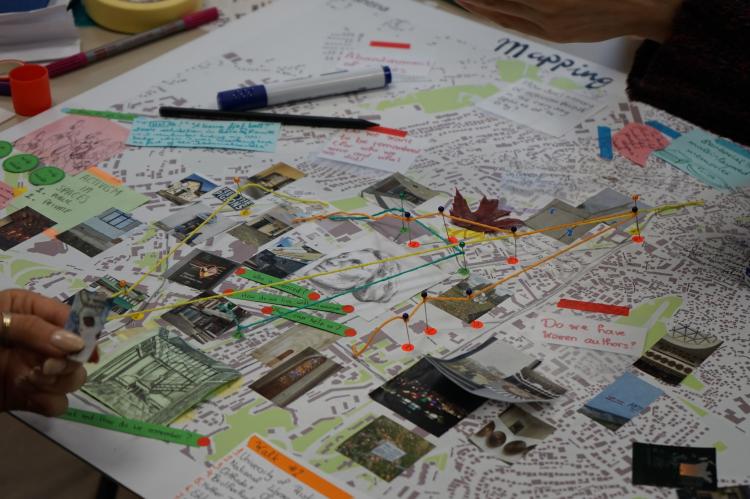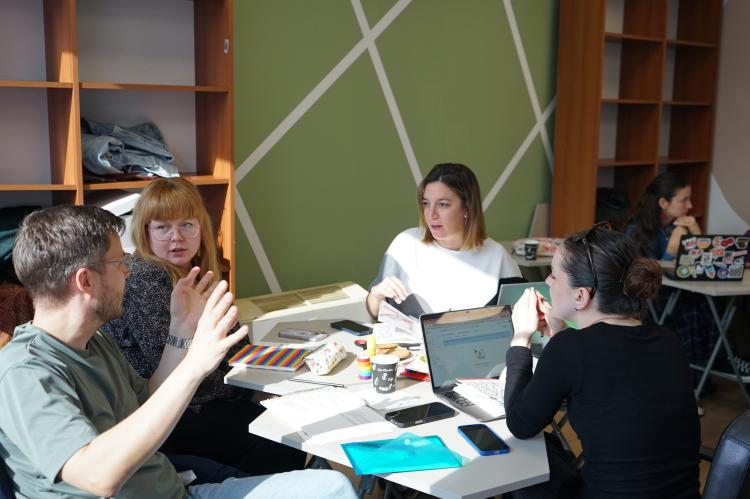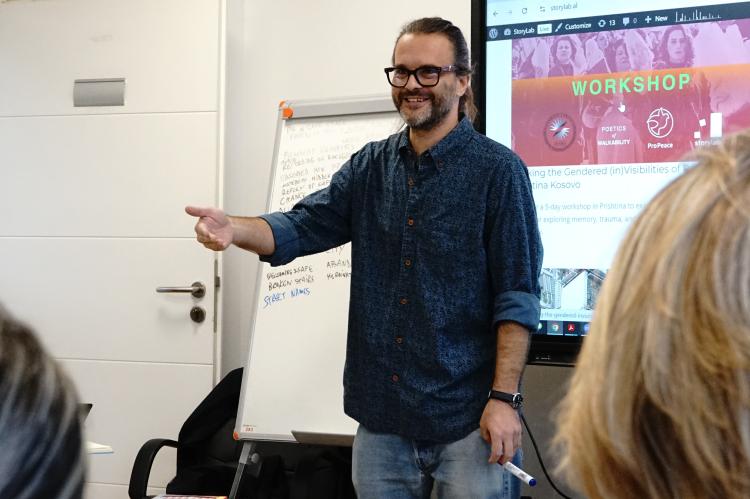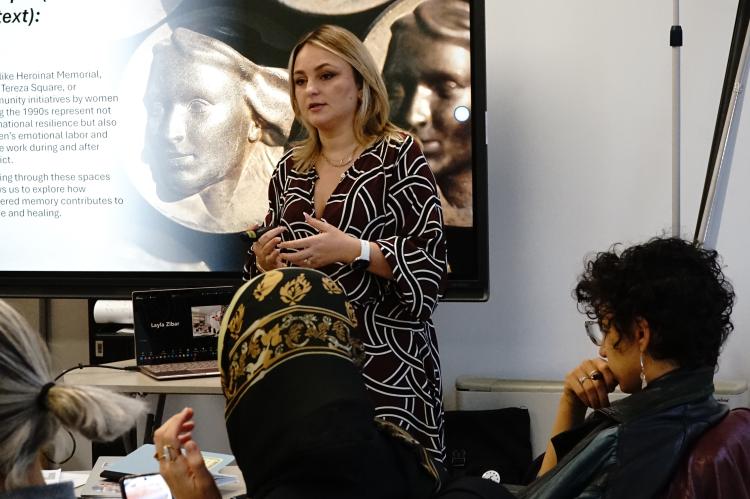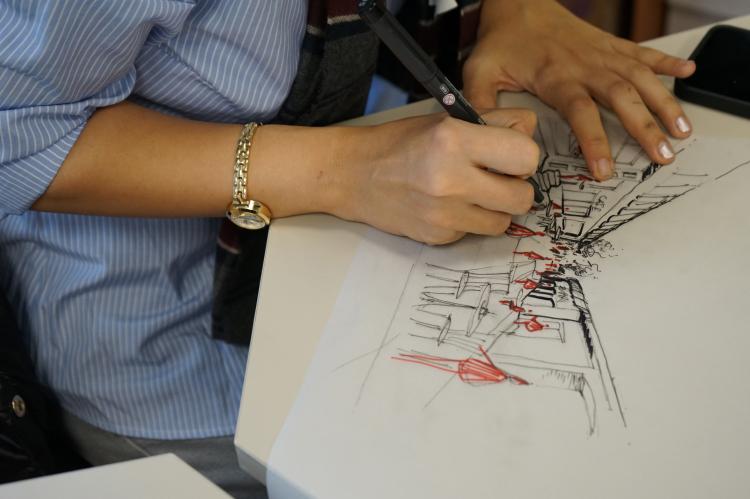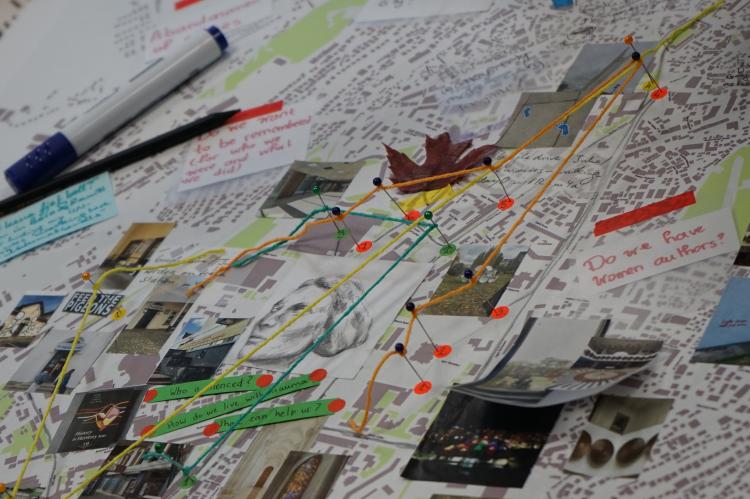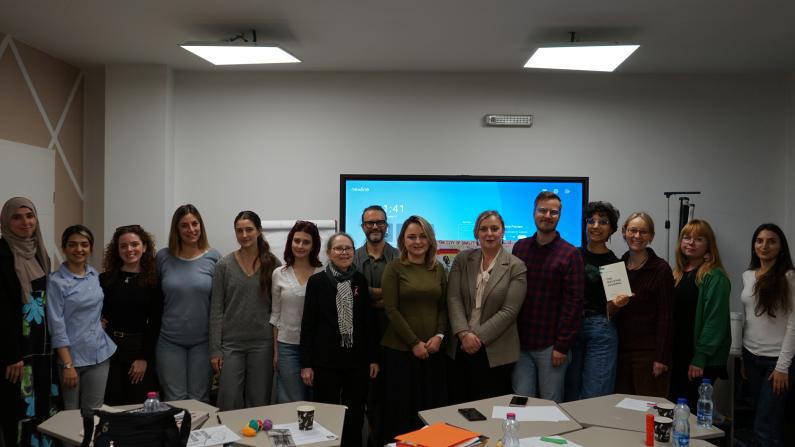
Together with our partners, the University of Prishtina and Poetics of Walkability, we shaped a collective experience that invited participants to explore how walking, writing, and reflection can open new ways of sensing and understanding the city. Throughout the week, Prishtina became a site of dialogue between people and place, between the visible and invisible, the remembered and the forgotten.
The workshop opened with two keynote lectures. Prof. Vjollca Krasniqi spoke about Gender and (Slow) Memory: Feminist Reimagining, offering a powerful reflection on how gender shapes remembrance and resistance in post-conflict societies. Argjire Krasniqi followed by presenting her research on Janjeva in Kosovo and reading excerpts from her book Prishtina Warchitecture, revealing everyday stories behind vacant buildings — stories of trauma, survival, and hope. Later, Diana Salahieh and Dr. Layla Zibar introduced the Poetics of Walkability methodology, framing walking as a poetic and political act that connects embodiment, narrative, and representation. The day concluded with Memory Walk #1 – Solo Drifting, where participants wandered through the city, reflecting on how memory moves through urban space.
As the week continued, participants engaged in creative writing sessions led by Artrit Bytyçi (StoryLab Kosovo), transforming impressions from their walks into short pieces of fiction and creative non-fiction that captured both inner and outer landscapes. Enes Toska then guided Memory Walk #2, a journey through Prishtina’s monuments, public squares, and shifting urban terrain, inviting reflection on how memory is inscribed in the city’s architecture. In the evening, Vjollca Islami Hajrullahu led a heartfelt session titled Memory Walk – Gender & Psychological Perspective, opening intimate dialogue about how gender and psychology shape our ways of remembering.
The following day focused on embodiment and artistic expression. Dafina Rudi (Evolution Dance) guided participants through slow, mindful movement, awakening bodily awareness and exploring the connection between breath, body, and space. Later, Renea Begolli and Anyla Kabashi presented Body as Archive, revisiting the independent art scene of post-war Prishtina and tracing how artists transformed the city into a site of collective resistance and memory in the absence of institutional infrastructures. Their guided walk led participants through places once used for self-organized artistic gatherings, highlighting how art, activism, and movement redefined public space in the years after conflict.
As the days unfolded, participants began developing collaborative projects that combined writing, mapping, movement, and reflection. These works explored gendered memory, urban transformation, and the poetics of walkability, reimagining how the city can be felt, remembered, and reclaimed through creative practice. Together, these moments formed a tapestry of personal and collective reflection, revealing how cities continue to hold stories of resistance, care, and transformation.
For us at ProPeace Kosovo, this journey was a reminder that peacebuilding and peace education is also a creative process — one that lives in empathy, imagination, and the simple act of walking together. Through art and reflection, we rediscovered Prishtina as a living archive, a city that breathes with the traces of its past and the imagination of its future. We are thankful to all participants and contributors for their passion and openness, and to StoryLab Kosovo, whose creative energy enriched this shared experience.
Waking the Gender (In)visibilities of Resistance in Prishtina, Kosovo is a collaborative five-day workshop bringing together scholars, artists, and community activists from Kosovo, England, France, Germany, Greece, Iran, Poland, Turkey, and Ukraine. Together, we rethink how to walk, learn how to remember, and reclaim women’s activism from the 1990s, along with the memory spaces that continue to shape Prishtina’s post-conflict identity today.
